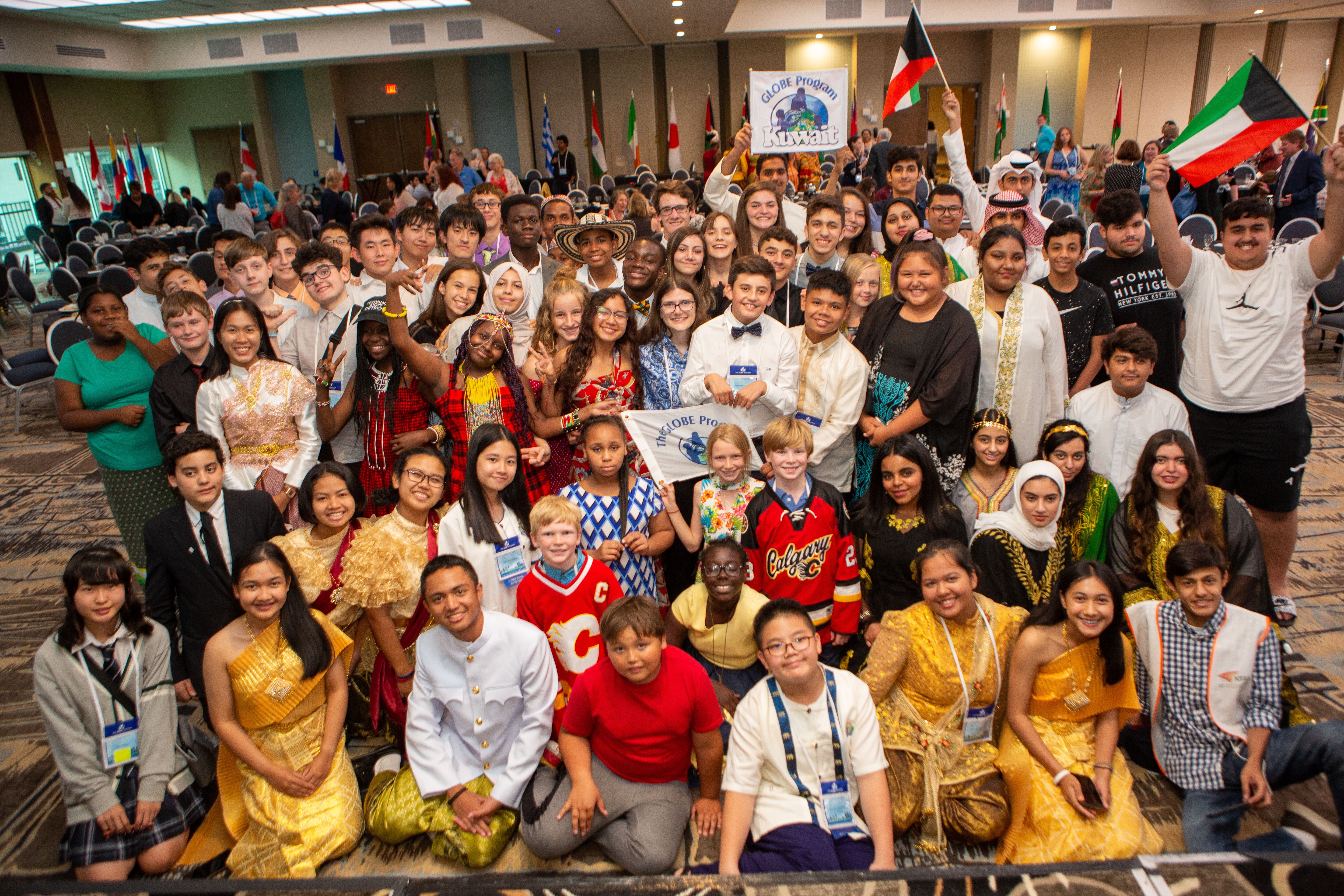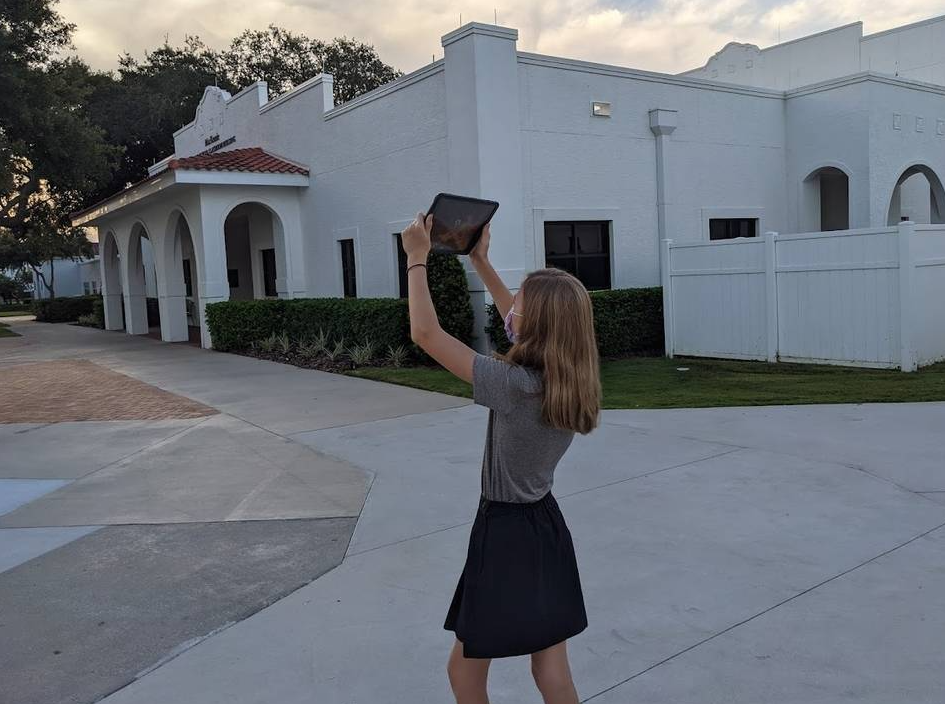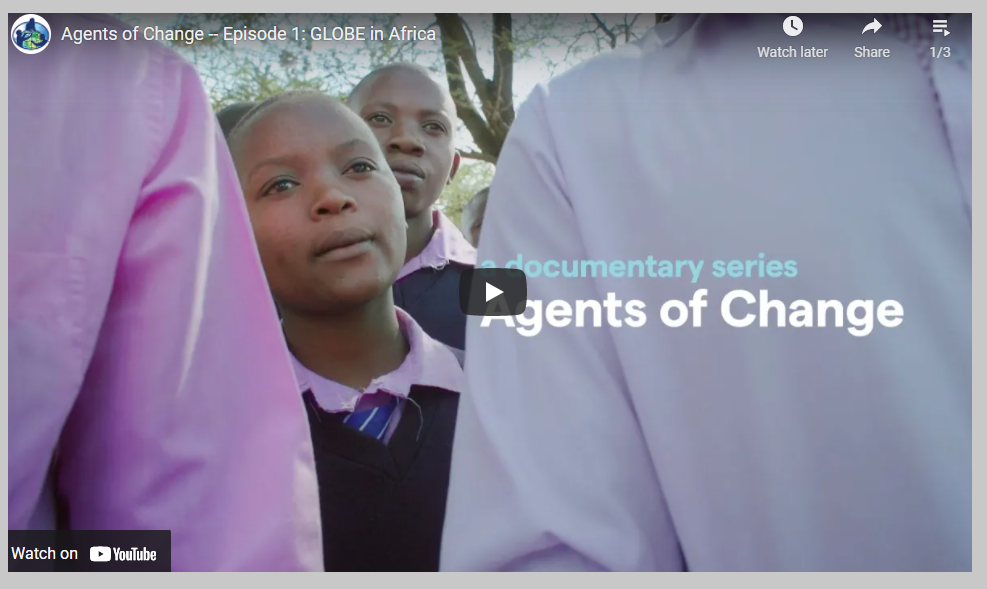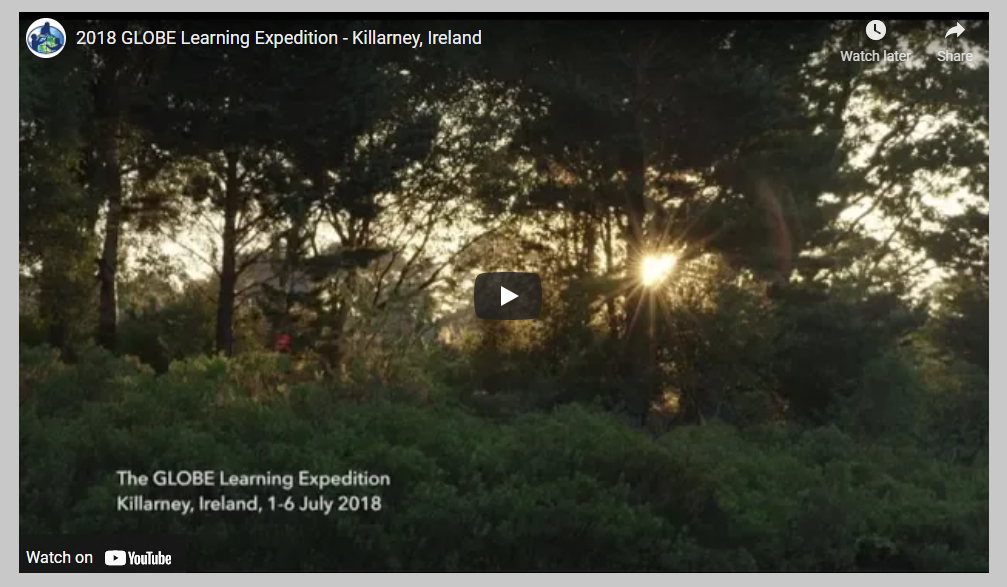News - University of Puerto Rico, Mayaguez Campus
NASA Article Highlights The GLOBE Program Receiving the AGU 2021 Excellence in Earth and Space Science Education Award

By Alison Gold
Media contact: Ellen Gray
NASA's Earth Science News Team, Greenbelt, Md.
Last Updated: 09 December 2021
Editor: Sofie Bates
GLOBE Program Receives AGU Award
The NASA-sponsored Global Learning and Observations to Benefit the Environment (GLOBE) Program has received the American Geophysical Union (AGU) 2021 Excellence in Earth and Space Science Education Award. According to AGU, the annual award honors an individual, group, or team committed to promoting excellent geophysical education.
Through GLOBE, people around the world learn how to document and share useful information about their local environment with scientists. Launched on Earth Day in 1995, GLOBE connects scientists, teachers and students in 126 countries with hands-on scientific activities.
“GLOBE is a phenomenal program that has a special place at NASA,” said Dr. Allison Leidner, program manager for education and communication in the Earth Science Division of NASA's Science Mission Directorate. “Enabling students and citizen scientists to investigate our home planet gives them a greater appreciation of our environment, ignites their interest in science-related careers and connects them to the international Earth science community. We are so happy to see AGU recognize GLOBE with this award.”
Through teachers that have been trained in GLOBE protocols, students learn how to conduct scientific investigations and collect data in their community. GLOBE science protocols were developed with Earth scientists and many protocols have connections to NASA’s satellite missions. So far, GLOBE participants have gathered and shared more than 200 million Earth science observations.
“The GLOBE Program has made outstanding achievements and contributions by pushing the frontiers of our science forward," said AGU President Susan Lozier in a statement, on behalf of the AGU Earth and space science community. “GLOBE has also embodied AGU’s shared vision of a thriving, sustainable and equitable future for all, powered by discovery, innovation and action. And you did this with integrity, respect, diversity and collaboration while creating deep engagement in education and outreach.”
Creative GLOBE students in Ortum, Kenya, collecting environmental data using home-made weather instruments, find themselves the beneficiaries of a new 3D printed weather station.
In addition to being sponsored by NASA, GLOBE is supported by the National Science Foundation (NSF), National Oceanic and Atmospheric Administration (NOAA) and the U.S. Department of State.
Dr. Tony Murphy, GLOBE Implementation Office director, and Dr. Caryn Long, middle school science teacher at Montverde Academy in Montverde, Florida, share more about the program and its recent recognition. Their responses have been edited for clarity.
1. What sets GLOBE apart from other education programs?
Tony Murphy: GLOBE has a strong community of citizen scientists, students and teachers all over the world who are eager to contribute to Earth system science research. GLOBE allows people to contribute to data collection and submission, to understand the scientific research process and the work of scientists and to see how their local environment fits into the regional and global environment.
Caryn Long: I have used GLOBE in my classroom for five years now. GLOBE is different from other science education programs because it educates students while also immersing them in the practical and applied nature of science. Knowing they are contributing to real science research with NASA scientists is a powerful motivational tool to get them to practice the skills of observation, data collection and analysis in a real and meaningful way. They want to practice the skills they are developing because what they are doing is valued.
 In September, one of Dr. Caryn Long's middle school science students at Montverde Academy in Montverde, Florida, participates in GLOBE protocols, gathering data to share with NASA scientists. Credits: Courtesy of Caryn Long
In September, one of Dr. Caryn Long's middle school science students at Montverde Academy in Montverde, Florida, participates in GLOBE protocols, gathering data to share with NASA scientists. Credits: Courtesy of Caryn Long
2. How do your students contribute to GLOBE, and what do they most enjoy about it?
Long: Our classroom participates in the Cloud, Aerosols and Hydrology Protocols and the Surface Temperature Field Campaign at the lake behind our school. We are adding more protocols each year. Each time I share with my students that we are learning a new protocol to add to their toolbox, they are excited to get started. What my students have enjoyed most about GLOBE is meeting some of the scientists that are involved with the program. Another highlight for them is gathering the cloud data, because it involves NASA satellites. Receiving the email matches with the satellites are exciting to the kids because they love comparing what they saw from a ground level to what the satellite has viewed.
3. What are some highlights from your time as director of the GLOBE Implementation Office?
Murphy: Seeing students communicate their research at meetings, and especially at the two GLOBE Learning Expeditions I have attended, has been truly amazing. GLOBE Learning Expeditions are week-long, student-focused events held every few years at sites around the world. I gave a scientific presentation at a national science competition in Ireland when I was in middle school. That experience had a major influence on my life, so it’s incredible to see so many GLOBE participants have a similar opportunity.
4. What is most exciting about the AGU award?
Murphy: The GLOBE community has grown tremendously from a small number of countries in 1995 to 126 countries today with a database of over 200 million measurements for use in research by students and scientists. New technology advancements including the GLOBE Program’s app, GLOBE Observer, have impacted the ways in which the program is implemented and enables citizen scientists to participate. The GLOBE community worldwide, including students, country coordinators, teachers, program support staff, government officials and program sponsors, have allowed GLOBE to earn this recognition.
News origin: GLOBE Implementation Office







